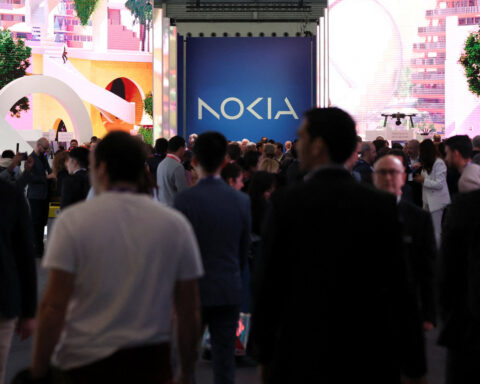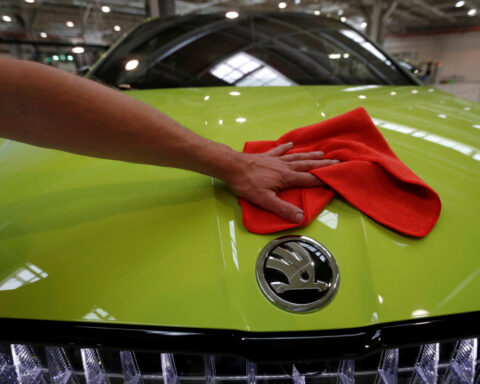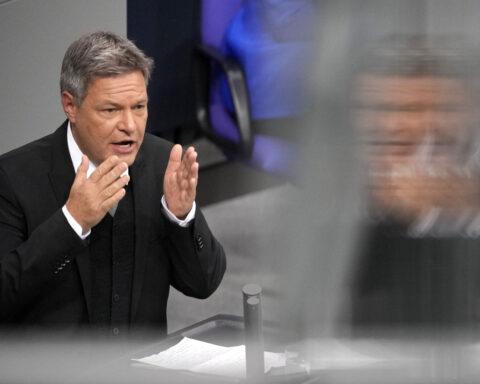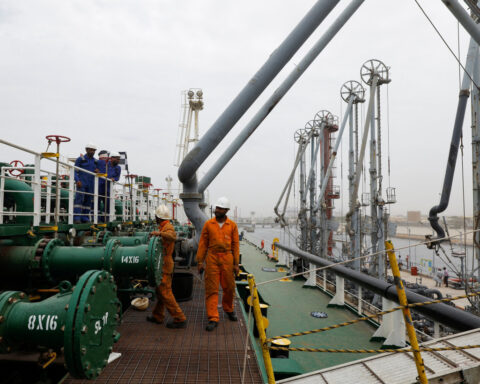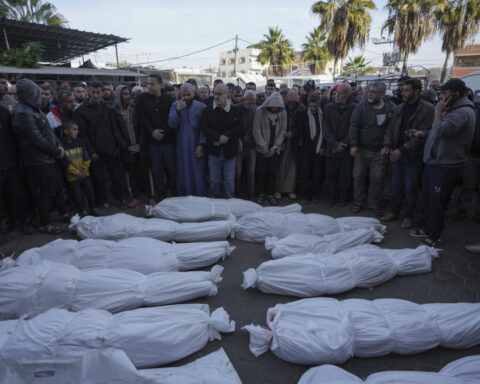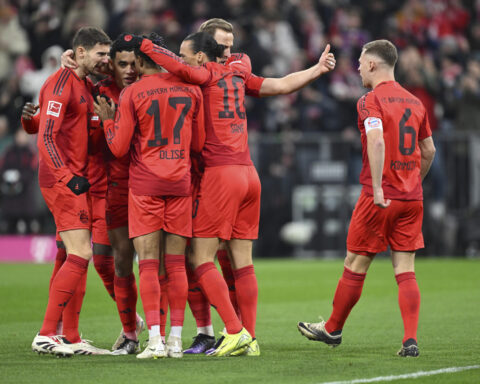By Michel Rose and Ingrid Melander
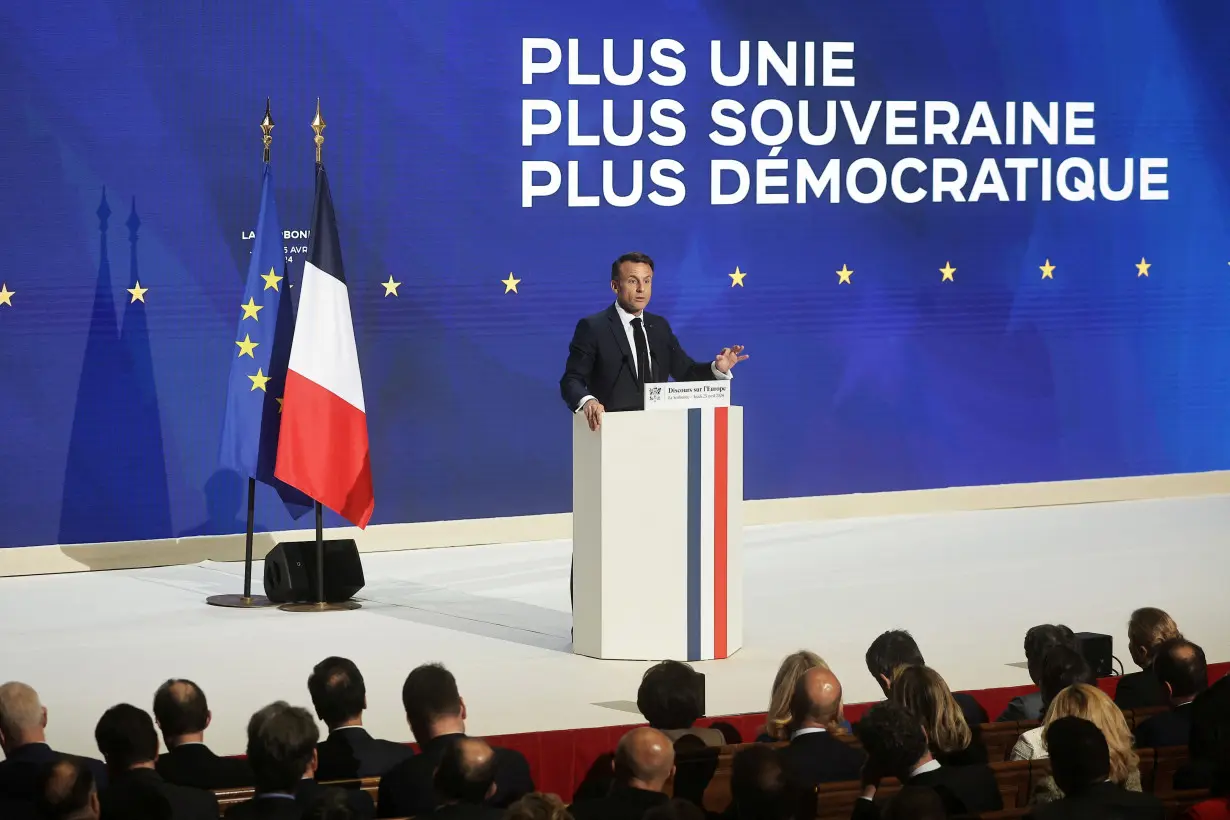
PARIS (Reuters) - French President Emmanuel Macron called on Thursday for stronger, more integrated European defences as he outlined his vision for a more assertive European Union on the global stage.
In a speech at the Sorbonne University in Paris, he also said the continent must not become a vassal of the United States.
"There is a risk our Europe could die. We are not equipped to face the risks," Macron said.
With just three years left of his second and final term in office, Macron, 46, wants to show his critics he retains the energy and fresh thinking that helped propel him into the presidency in 2017 and that he has not become a lame duck leader.
In the speech lasting nearly two hours, he warned that military, economic and other pressures could weaken and fragment the 27-nation EU.
Russia must not be allowed to win in Ukraine, he said, calling for a boost in Europe's cybersecurity capacity, closer defence ties with post-Brexit Britain, and the creation of a European academy to train high-ranking military personnel.
Europeans should give preference to buying European military equipment, he said.
"We must produce more, we must produce faster, and we must produce as Europeans," Macron said.
The speech won a positive response from Macron's main EU partner, German Chancellor Olaf Scholz, with whom he has often clashed on defence and trade issues.
"France and Germany want Europe to be strong," Scholz said in a post. "Your speech contains good ideas on how we can achieve this."
Macron has long called for European "strategic autonomy" involving less reliance on the United States, a stance that has gained greater resonance in the face of Donald Trump's bid to return to the White House. Trump has often accused Europe of free loading on defence at the United States' expense.
Europe "must show that it is never a vassal of the United States and that it also knows how to talk to all the other regions of the world," Macron said.
Many EU officials believe there is currently no credible alternative to the U.S. military umbrella.
ECONOMIC CHALLENGES
Macron said Europe also risks falling behind economically as global free-trade rules are being challenged by major competitors. The European Central Bank should no longer just target inflation, but also growth and climate, he said.
The EU should agree exemptions to its own competition rules so it can support firms in sectors such as AI and green energy in the face of "oversubsidies" by the U.S. and China, Macron said.
Europe needs less fragmented markets for energy, telecoms and financial services, and must also cut red tape, he added.
The French leader hopes his speech will have the same impact as a similar address at the Sorbonne he made seven years ago that prefigured some significant EU policy shifts.
Since then, much has changed, with geopolitical challenges including the war in Gaza, Russia's invasion of Ukraine and disputes between China and the United States.
Thursday's speech was billed by Macron's advisers as France's contribution to the EU's strategic agenda for the next five years. The agenda is due to be decided after the European elections.
"Macron thinks that Europe's strategic fault lines are not just with illiberal assertive powers but also with the U.S," said Rym Momtaz of the International Institute for Strategic Studies in Paris.
"He accuses (them) of espousing unfair competition practices similar to China, and consequently paralyzing Europe's ability to assert itself as a real global power player," she said.
(Additional reporting by Dominique Vidalon, Benoit Van Overstraeten, Gabriel Stargardter, Writing by Michel Rose and Ingrid Melander, Editing by Gareth Jones and Angus MacSwan)

 Germany sees meat exports to EU continuing after foot-and-mouth case
Germany sees meat exports to EU continuing after foot-and-mouth case
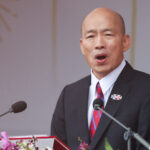 Parliament speaker to lead Taiwan delegation to Trump's inauguration
Parliament speaker to lead Taiwan delegation to Trump's inauguration
 German economy contracted 0.2% in 2024
German economy contracted 0.2% in 2024
 Middle East latest: Palestinian prime minister says Palestinian Authority should run Gaza in future
Middle East latest: Palestinian prime minister says Palestinian Authority should run Gaza in future
 Nokia signs multi-year patent license agreement with Samsung
Nokia signs multi-year patent license agreement with Samsung
 Irish parties secure 'comfortable majority' for new government
Irish parties secure 'comfortable majority' for new government
 Bayern Munich signs US youngster Bajung Darboe from LAFC
Bayern Munich signs US youngster Bajung Darboe from LAFC
 Novak Djokovic breaks a tie with Roger Federer for the most Grand Slam matches in tennis history
Novak Djokovic breaks a tie with Roger Federer for the most Grand Slam matches in tennis history
 China's RedNote: what you need to know about the app TikTok users are flocking to
China's RedNote: what you need to know about the app TikTok users are flocking to
